Iran has begun shipping crude oil through the Goreh-Jask pipeline that passes off the Strait of Hormuz and ends in the Gulf of Oman port city of Jask, from where the oil can be loaded onto tankers for export.
The 620-mile pipeline will be officially inaugurated later this year by President Hassan Rouhani.
Iran has been preparing for the removal of U.S. sanctions for months, increasing its oil production and preparing to increase exports as well.
Meanwhile, however, the country is increasing oil production and planning to return to the production level of 4 million barrels per day in three months. Most of this will probably be exported through the Strait of Hormuz.
However, with the new pipeline, Iran now has an alternative route as well that takes oil directly from the producing regions in Iran to the Gulf of Oman. This gives Iran the freedom to export oil without having to go through the Strait of Hormuz which can easily be blocked by American naval forces and their allies in case of conflict or stronger sanctions.
Why is the construction of Iran’s Goreh-Jask pipeline important?
The Iranian Goreh-Jask pipeline is of great economic and geopolitical importance to Iran for two main reasons:
The first reason is that the new pipeline will allow Iranian crude oil exports to bypass the Strait of Hormuz for the first time since the beginning of oil production in Iran in the early 20th century.
The second reason is that it will increase Iran’s geopolitical reach on a grand scale, allowing it to be able to use the threat of closing the Strait of Hormuz for political reasons, blocking the transport of a third of the world’s oil, without harming its own oil exports.
What are the possible consequences for the region and the world of the new Iranian Goreh-Jask pipeline?
- Easier oil exports from Iran
- more money for Iran to invest in weapons
- puts Iran in a stronger negotiating position to contain its nuclear ambitions
- Opec+ may increase oil production to “compete” with Iran
- more oil on the market, possibly leading to lower prices and lower inflation in importing countries
- a rapprochement between Saudi Arabia and Iran to try to avoid this competition on oil prices
- Since access to energy may be one of the greatest strengths or vulnerabilities of any country in geopolitical terms, being able to export oil freely, bypassing American sanctions and possible blockades, will allow Iran to export much more oil and thus finance its expenses and increase its military budget. This is in addition to the fact that China has already been buying Iranian oil, totally ignoring American pressure not to do the same.
- As the “Iran Nuclear Deal” or JCPOA (The Joint Comprehensive Plan of Action) is being renegotiated. With this new access to the oil market, Iran will have more strength to negotiate a better deal for itself.
- Currently, the group called “OPEC+” or Joint Ministerial Monitoring Committee (JMMC), which essentially consists of almost all of the OPEC countries except Iran, plus Russia, have controlled oil production in the world to keep prices high. This has led to higher gasoline prices in countries like Brazil and the United States, contributing to local inflation. If Iran starts flooding the world market with more oil, it will compete with this OPEC+ agreement and the countries in the group that are holding back production will end up losing out with lower production and lower prices.
- In fear of this happening, there has been a rapprochement between Iran and Saudi Arabia in recent days, with some secret meetings between officials of the two countries and exchanges of words of affection between their leaders. For example, Saudi Arabia’s Crown Prince Mohammed bin Salman – publicly stated that he seeks “a good and special relationship with Iran…We don’t want Iran’s situation to be difficult, on the contrary, we want Iran to grow…and push the region and the world towards prosperity.” This statement goes completely contrary to the years of animosity between the two countries.
Regardless of whether these predictions come true, just this rapprochement between the major countries in the region is already a positive sign.






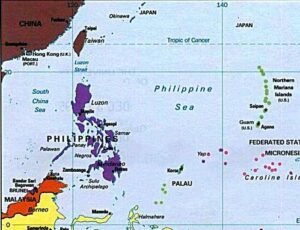
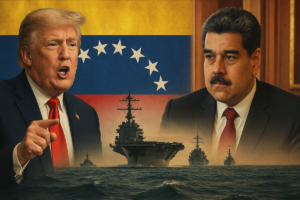
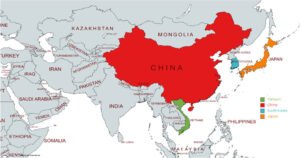

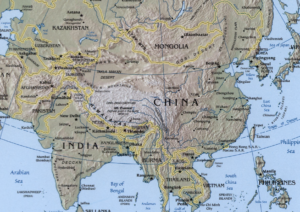



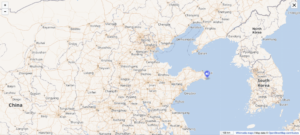




[…] The success of Tesla, climate change, and the quest for energy independence (China is a major oil importer) are leading the world to gradually replace the fleet of ICEs (internal combustion engine vehicles) […]
[…] Damerjog Industrial Development Free Zone in Djibouti is being built to serve petrochemical projects and heavy industry. There is also a terminal for livestock – including camels […]
[…] NWF, which accumulates Russia’s oil revenues and was initially designed to support the pension system, had assets of $185.9 billion as of May 1, […]
[…] and violence could spread to bordering countries such as Pakistan, Tajikistan, Turkmenistan, Iran, and most importantly, […]
[…] As already reported in this portal, there is at the same time, a timid rapprochement between Saudi Arabia and Iran. […]
[…] Guyana could reach a daily oil production of up to 1 million barrels per day by 2030, becoming a major world oil producer, becoming a new energy power in the […]
[…] region is extremely strategically and geopolitically important as it has large reserves of oil, gas, fish, and strategically important shipping […]